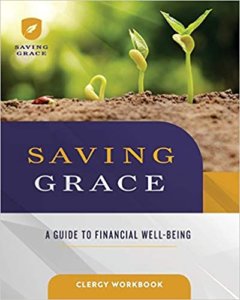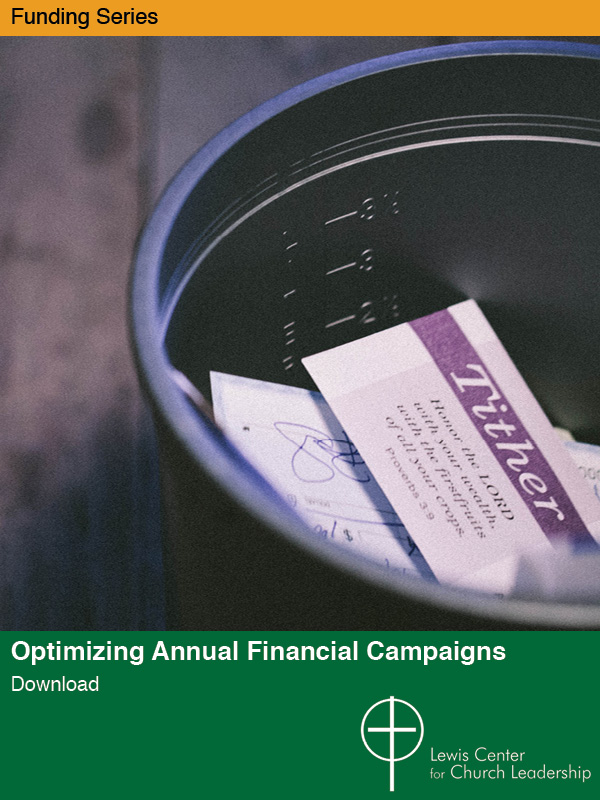The Christian faith invites us to think about giving in new and countercultural ways. Giving faithfully and for the right reasons puts us in alignment with God’s purposes and brings joy.
Our consumer culture sends us many messages about what it means to give and give well. Believing these messages draws us away from the faithful way, and in doing so, it keeps us from experiencing the joy of generosity that God has in mind for us.
What our consumer culture says about giving
1. Give if it benefits you.
One of these messages is, “Give if it benefits you.” We are responding to this message when the primary motivation for our giving is being recognized for our generosity or when we give as a tax benefit, or if our giving is to gain influence or notoriety.
2. Give to get.
At its worst, the message becomes, “Give to get.” This attitude can even infect our spiritual life when we believe that our giving is a kind of inducement for God to give us back more. This “prosperity gospel” message has even worked its way into some churches.
3. Give if there is anything left over.
Another message we hear is, “Give if there is anything left over.” For the vast majority of people, giving comes last in our financial habits. It has been documented that during the most prosperous periods in our recent history, a strange counterintuitive thing happened — giving actually decreased as a percentage of income, income increased but spending consumed the additional income. For many, giving is an afterthought rather than a priority.
4. Give out of a sense of duty.
Yet another message we take in is, “Give out of a sense of duty.” Our consumer culture, and sometimes even our churches will guilt us into feeling that we have a duty to give something. The Lord does ask us to give to those who need it, but God is also concerned about why we give. Giving out of duty or guilt is an empty gesture and different from generous giving which comes from the heart.
What faith says about giving
The Bible characterizes those who give out of a desire to grow in their discipleship as “generous.” A generous giver is one who gives with a joyful attitude and a compassionate heart. Just as a body of water without an outlet becomes stagnant, a life without an outlet for giving becomes a stagnant life. Giving is the channel through which God’s love, compassion, and generosity can flow through us.
When we give, we become more of who God designed us to be. Created in God’s image, we are made to live in connection and community with others and to share a portion of what we have with others. Simply put, giving changes the lives of not only those who receive, but also those who give.
1. Faithful giving is a response to God’s goodness.
God calls us to give in response to God’s goodness. James 1:17 says, “Every good gift, every perfect gift comes from above. These gifts come down from the Father, the creator of the heavenly lights, in whose character there is no change at all.” Our Creator gives us good things, and so our giving is simply a way to say, “Thank you. I’m so grateful.” An important way we show our gratefulness is by making our giving the first obligation of our income. The Old Testament refers to that as “first fruits” giving (Leviticus 23:10 and others).
2. Faithful giving acknowledges God as our source of security.
Second, God is our source of security. In Matthew 6:19-21, Jesus warned his followers not to store up treasures here on earth, where they can be eaten by moths, get rusty, and where thieves break in and steal (or where one economic downturn can wipe them out). Instead, they should store up treasures in heaven. Another way to think of it is not to put your security in wealth, but in the Provider of wealth — not in the gift, but in the Giver.
3. Faithful giving furthers God’s justice.
A third reason God calls us to give is because God cares about economic justice. The growing inequality of resource distribution is one of the great issues facing our world today, and it is creating much conflict in the world. Throughout the Scriptures, material blessing has been linked to obedience, particularly in reference to justice and compassion for the poor. If God has blessed us beyond what we need, it’s so we can help those less fortunate, not just to increase our standard of living. We are called to love. We can give without loving, but we cannot love without giving.
4. Faithful giving blesses us and others.
Another reason God wants us to give is to bless others and to be blessed. The relationship between giving and blessing goes all the way back to God’s original covenant with Abraham. In Genesis 12:2-3, God tells Abraham that he and his spouse are being blessed in part so that they can be a blessing to others. We miss that joy and blessing in our own lives when we hold on to what we have rather than sharing freely with others.
5. Faithful giving breaks the hold money can have over us.
A final and very important reason for giving is that it breaks the hold money can so easily have on us. Money often equals power, and money can demand our allegiance. When I release money by giving it away, it breaks the hold money can have over me.
 This material is excerpted from Saving Grace: A Guide to Financial Well-being Abingdon Press, 2020. Used by permission. Saving Grace videos, workbooks, and devotional materials explore money management from a Wesleyan perspective to help clergy and laity reach personal financial goals and address life concerns. The are available at Cokesbury and Amazon.
This material is excerpted from Saving Grace: A Guide to Financial Well-being Abingdon Press, 2020. Used by permission. Saving Grace videos, workbooks, and devotional materials explore money management from a Wesleyan perspective to help clergy and laity reach personal financial goals and address life concerns. The are available at Cokesbury and Amazon.
Related Resources
- Theology of Stewardship and Biblical Generosity Video Tool Kit
- A Gracious Invitation to Generosity by Ann A. Michel
- Changing the Tone of Conversations about Money and Church by Lovett H. Weems, Jr.






